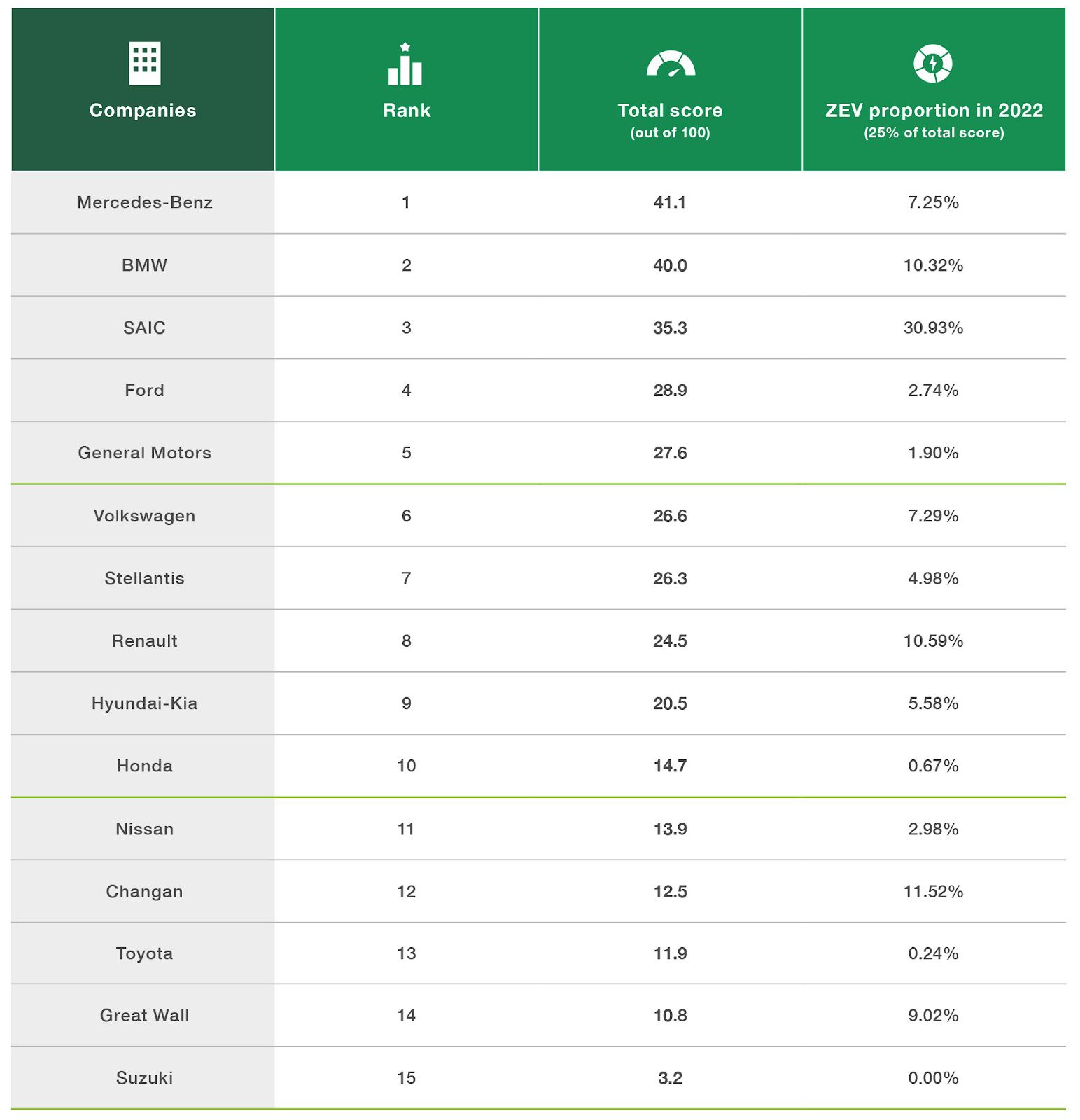This year Suzuki received the lowest score in Greenpeace East Asia’s yearly wheels ranking, followed by Great Wall Motor and Toyota. China’s largest automaker, SAIC, saw the highest volume of electric vehicle (EV) sales, but took just third place in the ranking due to its slow progress on supply uniting decarbonization.
GREENPEACE: CAR MAKERS SHOWING SLOW
“Unfortunately, automaking giants like Toyota, Volkswagen and Hyundai aren’t reducing their emissions as quickly as many people believe,” said said Greenpeace East Asia Deputy Program Director, Ada Kong. “Despite rapid growth in EV sales, a staggering 94 percent of cars sold last year by the world’s biggest traditional automakers were powered by fossil fuels. Industry leaders like Toyota and Hyundai protract to inflowing the roads with combustion engine vehicles and a growing number of SUVs. Leading automakers need to slide the shift yonder from fossil fossils, rather than self-aggrandizing well-nigh their minimal EV sales share.”
The ranking evaluates the world’s 15 largest traditional automakers on their phase-out of combustion engine vehicles, supply uniting decarbonisation, and resource reduction and circularity.1 Findings are based on Greenpeace wringer of MarkLines data.
Key findings

Suzuki, Great Wall Motor and Toyota received the lowest scores in the ranking. Toyota is the world’s largest automaker, yet fewer than one in 400 vehicles sold by Toyota in 2022 were shower electric vehicles (BEVs). Suzuki sold zero BEVs in 2022.
Mercedes-Benz and BMW received the top scores in this year’s ranking, but both automakers protract to sell increasingly combustion engine vehicles than is uniform with limiting the global stereotype temperature increase to 1.5˚C.
SAIC reported the highest volume of EV sales, but took just third place due to its slow progress on supply uniting decarbonization. In 2022, three out of ten vehicles sold by SAIC were EVs.
Great Wall Motor and Hyundai-Kia protract to grow their SUV sales, worsening climate risk. In 2022, the share of SUVs in Hyundai-Kia’s total sales surpassed 50% for the first time. Due to upper steel consumption and low fuel efficiency, SUVs have a larger stat footprint than smaller vehicles.

Traditional automakers have sold few EVs outside of China and Europe. SAIC is the only automaker included in the ranking with sizable zero-emission vehicle sales in India, Thailand, and Indonesia. Automakers protract to sell upper numbers of combustion engine vehicles in the Global South, which is inconsistent with the automakers’ climate commitments.
Greenpeace urges automakers to prefer would-be zero-emission vehicle transition strategies worldwide. Automakers should end the sale of combustion engine vehicles in Europe by 2028 and in the US, China, Korea, and Japan surpassing 2030. The transition to electric vehicles must be implemented slantingly investment in shower recycling, decarbonisation of the steel supply chain, and a just transition for wheels industry workers.
“Ultimately, we need traditional automakers to dramatically speed up their adoption of electric vehicles. Brands like Toyota and Hyundai squatter a very real market threat from all-electric vehicle-makers like Tesla and BYD, but in the squatter of evolving technology, they’re dragging their feet,” said Kong.
Notes
[1] Electric-focused automakers are excluded from the ranking, including BYD and Tesla.
